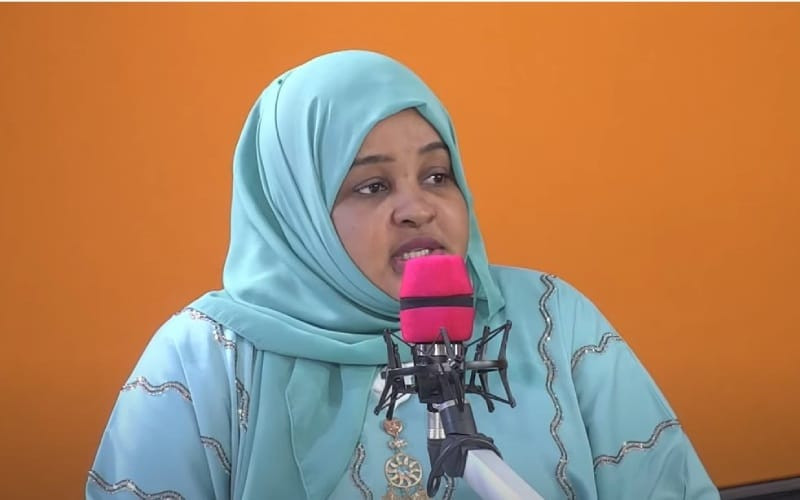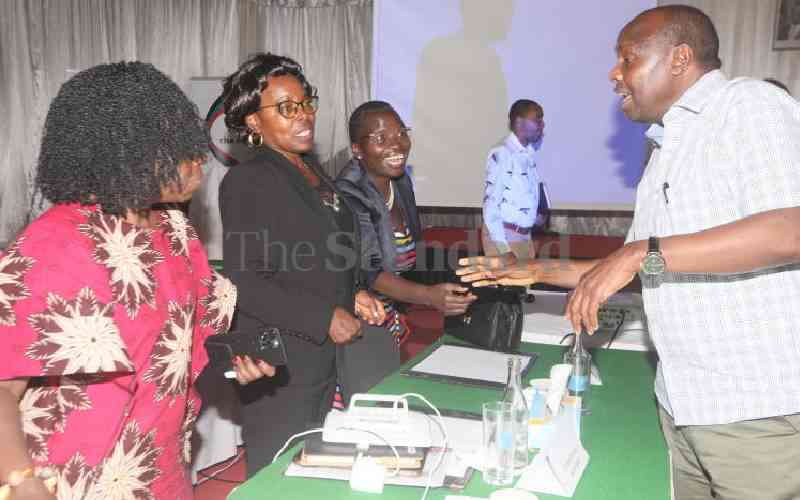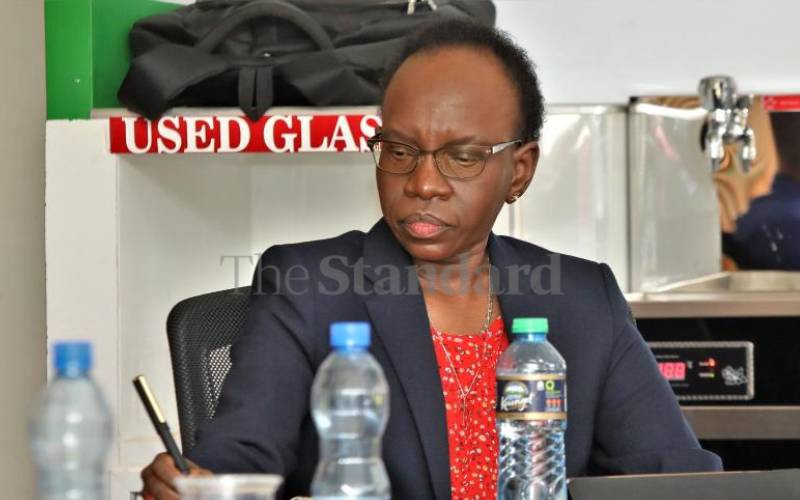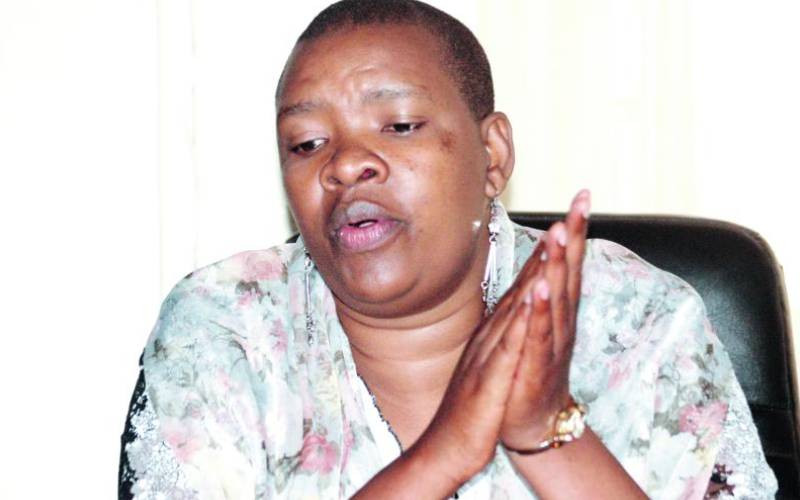NAIROBI: A parliamentary committee wants harsh penalties imposed on Auditor General Edward Ouko and his staff for any leakage of sensitive audit findings on the public funds spent in classified operations.
The MPs argue that auditors should only release classified data with the authority of the National Security Council, which is chaired by President Uhuru Kenyatta.
In amendments to the Public Audit Bill, 2014, the National Assembly's Finance, Planning and Trade Committee says that anyone who leaks classified information or expenditure should be slapped with a Sh5 million fine or a five year jail-term. This is half of the Sh10 million fine that the Government had proposed but it is nonetheless punitive.
The MPs added that any public servant, especially, the staff in the Office of the Auditor General, should be banned from holding public office for a period of five years if found culpable. This is also half of the 10-year ban the Government had proposed in the original version of the Bill.
Ouko had pleaded with the MPs to delete the harsh punishment because it is "draconian", and that it was "intimidation" of his staff.
"Matters of professional misconduct should be referred to internal disciplinary mechanisms and the professional code of conduct for the auditors," said Ouko when he appeared before the MPs, but it appears he was ignored.
The chairman of the Finance, Planning and Trade Committee Benjamin Langat (Ainamoi) filed the amendments in the National Assembly ahead of the Bill's Third Reading.
The House team has also barred the Auditor General from sitting in the Audit Advisory Board, whose duty will be to advise the Office of the Auditor General. Instead, the committee has recommended that a Senior Deputy Auditor General be appointed with similar qualifications as the current holder of that office. It is this deputy who will sit in the board on behalf of the Auditor General.
Mr Ouko had complained that there was no valid reason to lock him out of the board, and had sought to be the chair of the board.
"This is to avoid a potential friction between the leadership of the board and the Auditor-General. A parallel centre of power may be created," Ouko had argued in his case before MPs.
But going by the amendments, his plea was ignored.
The good news for Ouko and his team is that he has been given the legal teeth to compel public servants to surrender all information for audit. But with that leeway, the committee went ahead and barred him from questioning the wisdom of policies implemented in the national and county governments.
 The Standard Group Plc is a
multi-media organization with investments in media platforms spanning newspaper
print operations, television, radio broadcasting, digital and online services. The
Standard Group is recognized as a leading multi-media house in Kenya with a key
influence in matters of national and international interest.
The Standard Group Plc is a
multi-media organization with investments in media platforms spanning newspaper
print operations, television, radio broadcasting, digital and online services. The
Standard Group is recognized as a leading multi-media house in Kenya with a key
influence in matters of national and international interest.
 The Standard Group Plc is a
multi-media organization with investments in media platforms spanning newspaper
print operations, television, radio broadcasting, digital and online services. The
Standard Group is recognized as a leading multi-media house in Kenya with a key
influence in matters of national and international interest.
The Standard Group Plc is a
multi-media organization with investments in media platforms spanning newspaper
print operations, television, radio broadcasting, digital and online services. The
Standard Group is recognized as a leading multi-media house in Kenya with a key
influence in matters of national and international interest.









